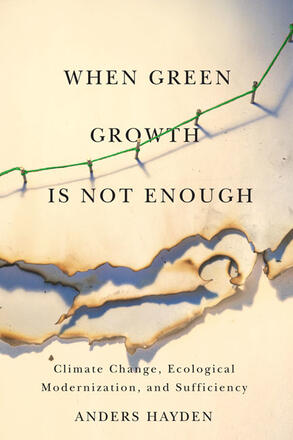
When Green Growth Is Not Enough
Climate Change, Ecological Modernization, and Sufficiency
Description
Is the pursuit of endless economic growth compatible with the deep reductions in greenhouse gas emissions required to avoid the worst extremes of climate change? In When Green Growth Is Not Enough, Anders Hayden analyzes the political battle between three competing approaches to this question and how it has played out in Canada and Britain. Defenders of the "business-as-usual" approach reject climate action as too costly and in conflict with economic growth, while downplaying the severity of climate change. Supporters of ecological modernization, or "green growth," on the other hand, aim to use technology and efficiency to delink economic expansion from emissions and find business opportunities through environmental action. While mainstream debate has focused on these two pro-growth models, Hayden pays particular attention to the struggles and limited inroads of a third, more radical perspective: the idea of sufficiency, which challenges the continued growth of production and consumption in the already-affluent global North and asks, how much is enough? Drawing on interviews, participation in climate-related events, and analysis of key documents, Hayden shows the role these paradigms have played in Britain, one of the world’s leaders in climate reform, and in Canada, a nation at the bottom of international climate change rankings. Rich in detail, When Green Growth Is Not Enough is a lively account of the theory and real-world politics of climate action.
Reviews
“When Green Growth Is Not Enough will inform a wide North American audience about European climate change and policy – we simply do not hear about this in conventional media and no similar debate takes place in Canada and the United States. We need this public discussion of what might be done and how we might do it.” Robert Paehlke, Environmental and Resource Studies, Trent University